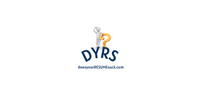Writing or updating your resume can be a challenging task. It’s something many job seekers don’t look forward to. They overthink it, put it off and procrastinate their way to delays. Meanwhile, jobs they may be perfect for, get filled by more proactive candidates. But with the right approach and attitude, it can also be an exciting opportunity to showcase your skills, qualifications and experience to potential employers.
And even to yourself! Whether you’re going it alone or working with a resume writer, you’ll be surprised how much the resume writing experience can teach you about yourself.
But where to start?
A good place to get started is by understanding some basic do’s and don’ts that both recruiters and resume writers should keep in mind when it comes to creating an effective resume.
The Do’s:
1. Tailor your resume to the job you’re applying for
This can take a little longer. If you have a great MASTER resume (which we can help with!) it can be much faster and easier. While it’s appealing to click send 10 times in 10 seconds and apply to 10 jobs with the exact same resume and cover letter, most employers recognize this. And they don’t like it!
Read More: Why Your Resume Needs to be Tailored to Each Job Application
2. Highlight your achievements, not just your duties
Employers and recruiters are interested in what you have achieved in your previous roles, not just the tasks you were responsible for. Use bullet points to highlight your accomplishments, awards you received, projects you led, initiatives you spearheaded or anything else worth a mention. This will provide a better understanding of your capabilities and potential value to their company.
Read More: Highlighting Your Achievements: Using Data and Metrics to Strengthen Your Resume
3. Use keywords relevant to the job
Many companies use applicant tracking systems (ATS) to filter through resumes, so it’s important to use keywords relevant to the job. These can be found in the job description or by researching the company website and the industry. Including these keywords in your resume can will help it get past the initial, automated gatekeeper.
Read More: Resume Keywords: How to Optimize Your Resume for Applicant Tracking Systems
4. Quantify your results
Using specific numbers to quantify your results can help demonstrate the impact you’ve had in previous roles. For example, instead of saying “Managed a team,” say “Managed a team of 5 people”. Instead of saying, “Increased sales”, say “increased sales by 20% by doing…”. Complete the sentence with more context if you’re able to. The point is, backing claims with real numbers gives employers and recruiters a clear idea of what you’ve achieved in previous roles.
Read More: Why Metrics Matter and How to Use Them!
5. Proofread your resume
A typo or grammatical error can be a major turnoff for recruiters — and it’s such an easy thing to fix! — so it’s important to proofread your resume multiple times before submitting it. Have a friend or family member review it as well to catch any mistakes you may have missed.
The Don’ts:
1. Including irrelevant information
Your resume should only include information that is relevant to the job you’re applying for. Avoid including irrelevant personal information such as your age, marital status or hobbies. Employers are interested in your professional experience and qualifications, not your personal life.
2. Using an unprofessional email address
Your email address should be professional and easy to remember. Avoid using email addresses that are overly personal or unprofessional, such as “partygirl@email.com.” Instead, use a simple combination of your name and/or initials.
3. Lying or exaggerating your experience
It can be tempting to exaggerate your experience or qualifications in order to stand out, but it’s important to be truthful on your resume. Employers and recruiters will likely verify your information during the interview process, and lying or exaggerating can damage your credibility, make for a nervous interview and ruin your chances of landing the job.
4. Using a generic resume
As mentioned earlier, it’s important to tailor your resume to the specific job you’re applying for. Using a generic resume that doesn’t highlight your specific skills and qualifications as they relate to the job you’re applying for can be a major turnoff for hiring managers. If you want to change things up, you could also try using a non-traditional resume.
5. Using a font or formatting that is difficult to read
Your resume should be easy to read and visually appealing. Avoid using fonts that are difficult to read, and use a clean and simple format. You want to make it as easy as possible for hiring managers and recruiters to quickly scan your resume and get a sense of whether you should be placed on the interview list.
There can be a lot to unpack with resumes. So the do’s and don’ts do not begin or end with this list. There are lots of little rules to follow. But this list is a good place to start. As you tailor more and more resumes for specific jobs, the do’s and don’ts will be easier to recognize.
If you need help, you can always reach out to us! You’ll get a MASTER resume, interview practice and skills, job opportunities that may be right for you and the potential for placement.
Drop us a line if you want to learn more at help@doesyourresumesuck.com.

